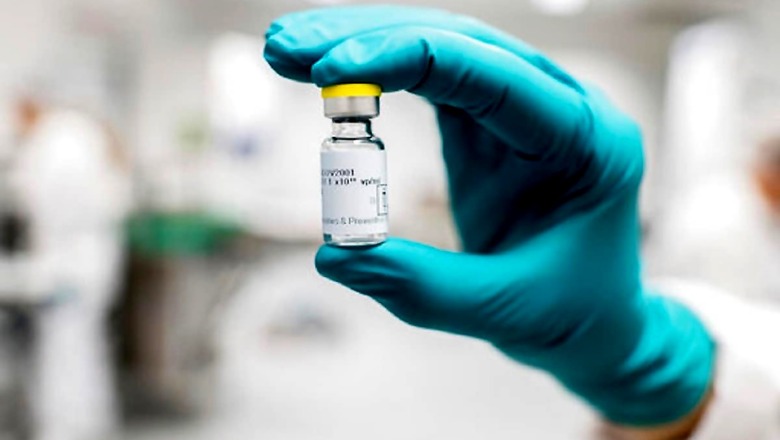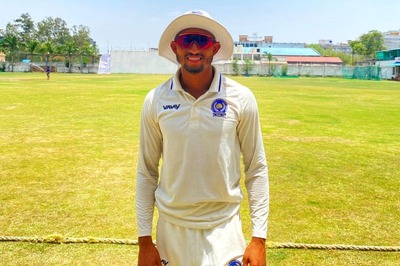
views
On August 11, 2020, Russia became the first country in the world to approve a vaccine against SARS-CoV-2 (or Covid-19). Since then, most countries have started some form of vaccination programmes, and a number of vaccines have either been developed or are in different stages of development.
Pfizer BioNTech Vaccine
This is an mRNA based vaccine BNT162b2 administered intramuscularly as two doses at least 21 days apart in individuals 16 years of age or older.
On December 2, 2020, the United Kingdom became the first country in the world to approve emergency use authorisation of this vaccine within 7 months of the start of clinical trials. However, the UK government departed from the company recommended schedule in preference of giving the two doses 12 weeks apart. The logic was to maximise quick penetration of vaccination in the community.
The vaccine was subsequently approved by the Food and Drugs Administration, USA, on December 11, 2020, and by the European Medicines Agency (EMA) on December 21, 2020. Pfizer applied for emergency use authorisation in India; however it has subsequently withdrawn its application.
On February 22, 2021, Public Health England released early data from its SIREN study about the effectiveness of BNT162b2 on healthcare workers. The study monitored baseline risk factors, vaccination status (from 08/12/2020-05/02/2021), biweekly symptom recording and SARS CoV-2 Polymerase Chain Reaction (PCR) and antibody tests. The vaccine was found effective in reducing both symptomatic and asymptomatic infections by up to 72% 21 days after first dose and 86% after two doses in antibody negative cohort and was effective against the B.1.1.7 variant.
Similar data from Israel found that even after a single dose, hospitalisation was down by 92% besides preventing Covid spread and deaths. This added weight to the UK approach of spacing the doses – the “first dose first” approach.
On February 25, 2021, Pfizer announced that they have initiated a study to evaluate effectiveness of booster dose to tackle the problem of mutants.
Moderna Vaccine
This candidate, mRNA1272, is developed by Moderna Inc in association with the National Institute of Allergy and Infectious Diseases, USA, and is broadly similar in principle and action to the Pfizer BioNTech.
It was approved in the UK on January 8, 2021 as a 2-dose 12-week gap regimen and in the USA on December 18, 2020, as a 28-day gap regimen. The EU approved it on January 6, 2021. It is effective against the UK variant but slightly less effective against the South African variant.
On February 25, 2021, Moderna confirmed that they have started testing a “new version of their vaccine” to tackle the South African variant. A booster dose is also being studied to tackle mutants.
Tata Medical and CSIR are in talks with the company to bring this vaccine to India.
Johnson and Johnson Vaccine
On February 27, 2021, the Food and Drugs Administration (FDA) of the USA issued Emergency Use Authorization (EUA) for a vaccine developed by the Belgian firm Janssen Pharmaceuticals of J&J for use in individuals aged 18 years or over.
This vaccine, Ad26.COV2.S, uses Adenovirus as a vector to carry Covid genetic code. The company calls this technology “AdVac Vaccine platform”, and have used it in Janssen’s European Commission approved Ebola vaccine and their investigational Zika, RSV and HIV vaccines.
It is being projected as a “game changer” being a “single shot vaccine”. As per the Phase 3 ENSEMBLE study, a single dose of this vaccine was 85% effective in preventing severe disease, and showed protection against Covid-19 related hospitalisation and death, beginning 28 days after vaccination. The vaccine has been trialled in the USA, Brazil and South Africa.
Though the overall protection was slightly lower in South Africa and Brazil where mutant strains are predominant, defence against critical illness remained “similarly high”.
The vaccine’s approval is currently under consideration in the UK and EU but South Africa has already begun administering it to their healthcare workers. It will be manufactured in India by Hyderabad based Biological E.
Oxford – AstraZeneca Vaccine
This vaccine, developed by scientists from Oxford and AstraZeneca is called ChAdOx-1. It uses a chimpanzee Adenovirus vector to carry SARS-CoV2 mRNA. The company recommended two doses 28 days apart.
A controversial study published in the Lancet in November 2020 showed 60-65% efficacy with two full doses. However, there had been accidental administration of half a dose in the first injection in a subset of the trial population under 55 years of age. This subset showed up to 90% efficacy.
The UK government approved it on December 30, 2020, with two full dose regimen 12-weeks apart.
However, the FDA (USA) has not approved this vaccine due to concerns over efficacy rates and confusion over dosage regimen as highlighted from the data published in Lancet article. Currently fresh trials are underway in about 30,000 participants.
In recent data from Public Health Scotland as a part of EAVE II study, AstraZeneca Vaccine has been shown to reduce hospitalisations by 94%.
A similar study from Oxford has shown a single standard dose to provide 76% protection against symptomatic Covid-19 in the first 90 days. The efficacy reached 82.4% after the second dose with a dosage interval of 12 weeks or more, validating the UK approach of 12-week spacing.
The vaccine has shown effectiveness against the UK strain but is less effective against the South African variant. South Africa has not approved this vaccine, neither has Switzerland.
Germany and France raised concerns over lack of data for its efficacy in the above-65 age group leading to some of their populations refusing to take up this vaccine. However their leaders are now urging people to go ahead, and the German regulator is revisiting its advice.
Pune-based Serum Institute of India is manufacturing it as Covishield.
(The article is the first part of the Vaccines Demystified series by the author.)
Read all the Latest News, Breaking News and Coronavirus News here



















Comments
0 comment